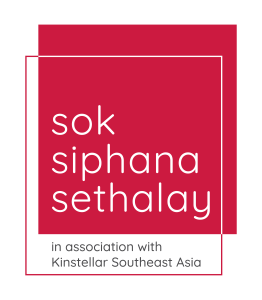COVID-19 Business Recovery Pathways from Business Perspectives
The Covid-19 pandemic is still taking its toll on the global economy and Cambodia. Smaller firms are typically more financially fragile than their larger counterparts. With weaker supply chain capabilities, less bargaining power, and less uptake of digital tools, MSMEs are more vulnerable and less resilient to crisis.
On 19th August, Dr Sok Siphana had attended with other speakers to discuss the impacts of Covid-19 on geopolitics and their consequences on MSMEs and young entrepreneurs hosted by Young Entrepreneurs Association of Cambodia (YEAC) via Zoom.
To learn more about what Dr Sok had remarked about the Impacts of Covid-19 on Geopolitics and their consequences on MSMEs, you can refer to the details below:
Dear Seang Sopanha, President of YEAC
Oknha Sok Piseth,
Dear friends,
This week we are all heartbroken to see on the news the Taliban’s takeover of Afghanistan. The scene of people scrambling for their lives, in town, at the airport, triggered the saddest memories of what Cambodia went through on April 17, 1975. The speed of the Islamist militant group’s advance and the Afghan military’s collapse was the same as with the Khmer Rouge’s capture of Phnom Penh. As the Taliban’s triumph triggered fears of reprisals against its population, we can only wish that they would not do what the Khmer Rouge did to us. Much closer to home, and just a few months ago, we have also witnessed another drama with the military coup in Myanmar and its mass of refugees.
Dear Friends,
The COVID-19 pandemic has seriously affected our economy, in particular Micro, Small and Medium Enterprises (MSMEs). Lockdowns and other restrictions have affected the quality of life of Cambodians more generally. I doubt we could eradicate this virus totally like we did with smallpox and so we have to get mentally ready to live with it. In another word moving from a pandemic mode to an endemic lifestyle. Thanks to the Royal Government’s rapid vaccination rollout, Cambodia is now amongst the leaders globally for vaccinations. Regionally, we are only second to Singapore. We are one of the first countries in the world to be rolling out booster shots and vaccinating children. This is good news for the economy.
According to the Ministry of Economy and Finance, Cambodia is on track for a rebound in 2022 as we will have less interruptions in manufacturing operations. More foreign direct investment will be forthcoming and our domestic demand particularly for services will gradually improve. Having said that, COVID-19 still posed an unprecedented challenge for MSMEs to afloat and thrive.
From my perspective, there are a few important development that will shape the prospect for MSMEs for many years to come. First, I will mention the new Law on Investment. The Council of Ministers has approved on July 9, 2021 the Draft Law on Investment of the Kingdom of Cambodia. This Draft law has cleared the commission of the National Assembly is expected to be debated at the plenary and at the Senate in the next few months and promulgated soon thereafter. Our Deputy Prime Minister and Minister of Economy and Finance, H.E. Dr. Aun Porn Moniroth, has reiterated that the new draft law has taken into account to recent COVID-19 developments and is aimed at diversifying the economy and promoting the private sector. Many provisions are supportive of MSMEs.
For his part, H.E. Sok Chenda Sophea has conducted numerous consultations with the private sector to develop a new regulatory framework that is conducive to attract to investors, both local and international. To that effect, new fiscal and non fiscal incentives have been introduced to nurture local investors. Recently, I have attended a webinar hosted by the American Chamber of Commerce (Cambodia), AmCham, and I can send to you all my presentation, where I described in details the various incentives. YEAC should have a dedicated webinar for its members when the law is promulgated.
The second development is about the upcoming entry into force of the Regional Comprehensive Economic Partnership (RCEP). I recalled last month I have also given a presentation to Entrepreneur Organization (EO). RCEP can be a major catalyst for post-pandemic recovery across Asia. In fact, for Cambodian businesses, it effectively creates an unprecedented framework for pan-Asian trade, as it covers large segments of the regional population.
The RCEP’s objective is to establish a modern, comprehensive, high-quality, and mutually beneficial economic partnership that contributes to global economic growth and development. It builds on the existing ASEAN Plus One FTAs (ASEAN’s FTAs with the five partners) and accounts for emerging trade realities like the role of MSMEs in regional value chains and electronic commerce, two topics of great relevance to our Cambodian MSMEs.
The emergence of Global Value Chains (GVCs) allows companies to be specialized in a small part of the supply chain, giving MSMEs more avenues to participate in international trade. The case of the garment and textile sector has long been a telling story of successful GVCs in Cambodia. With the duty and quota trade preferential treatments, such as the Everything But Arms (EBA) and the Generalized System of Preferences (GSP), to markets in advanced economies like the EU, the US, and Japan, the apparel and footwear industries have grown by leaps and bounds.
Cambodia’s economic diversification have had also some success, primarily to the traditional world markets like the EU, the US, Japan, the PRC, Canada, and the ASEAN markets like Singapore, Thailand, and Viet Nam. We have witnessed a surge in other goods export like automotive parts, light manufacturing, machinery and equipment products, bicycles and preprocessed agricultural products. Sector-wise, the magnitude of Cambodia’s overall GVC engagement is limited to only a few industries, led by textile products, leather and footwear. The rest are food and beverages followed by agriculture.
Value addition along the GVC is extremely important for Cambodian agro-processing SMEs. Currently primary processing still makes up the majority of agro-industry and normally only one value-added activity is performed before selling mainly to the domestic market. Cooking, grinding, drying, roasting, and/or packaging are the most common value-added activities. With the right technology, Cambodian SMEs can value-added a large proportion of its agro-products, including cassava, maize, and cashew nuts, before export, cutting down the middlemen in Thailand and Viet Nam.
With RCEP, Cambodia will have a larger access to China, Japan, the Republic of Korea, Australia, New Zealand. Of course, with China we have a Free Trade Agreement already, and very soon the Cambodia-ROK FTA will be signed. As such the RCEP will provide Cambodian companies with increased commercial opportunities and partnerships. There will be more opportunities for local enterprises to boost exports and participate in new value chains in the region.
The RCEP is a major breakthrough for Cambodian companies to exploit the immense market potentials open to them. In the past, because of cumbersome ASEAN plus one FTA Rules of Origin (ROO), SMEs just avoid going the FTA route. Now they can with one ROO.
For partnership prospects, the five advanced ASEAN countries have moved to high-end factories, where labour and production costs are relatively high. However, their companies are keen to minimize costs by outsourcing finishing work to the less well-off ASEAN nations. I would foresee more mergers and acquisitions (M&A) with Cambodian companies, particularly in the processed food industries and other agri-industries. Our law firm specializes in M&A and I urge companies who are keen to seek outside partnership to contact us as a regional law firm we do have extensive contacts in the region and we could help secure potential JV prospects.
Aside from enhanced market access for key sectors like processed food industries, I can foresee also vigorous cooperation in the services sectors, like finance, engineering, architecture and consultancy. Many Cambodian companies will be able to provide their services in RCEP countries as foreign suppliers, through increase in foreign shareholding so many sub-sectors. Do expect more franchises to come, more diversified types of franchises, bigger brands.
I expect as well the growth of the business process outsourcing industry. Cambodian skilled service workers, such as young IT programmers and software developers, could benefit from higher demand from countries like Japan and South Korea which are in need of these service workers. More professional cooperation is also envisaged, like for dentists, doctors, engineers, architects and other professions, as RCEP countries have agreed to mutually recognize each other’s professional qualifications.
Another area of focus in RCEP is e-commerce and digital trade, which looks promising for Cambodian SMEs. They could benefit from more productivity and expanded demand as they go online. E-commerce and modern communication technologies reduce the costs of trade by lowering transaction costs. Given Cambodia’s very high level of digital connectivity and its very open economy, compared to other countries in the subregion, e-commerce and digital trade can present new growth opportunities for smaller firms to connect to suppliers, consumers and big players in major industries. Of course, Cambodian SMEs have to work harder to increase local contents, i.e. more varieties of products and services. I would expect to see more service providers to establish commercial presence in Cambodia and enjoy greater market access in terms of cross-border supply and the larger RCEP markets.
I can assure you that competition will be fierce as Cambodia is an open economy. Cambodian SMEs should seize this moment to capture as much market share as possible as currently they have a natural advantage due to the closure of borders due to COVID-19. With the currently depressed real estate market, they should shift their resources from that speculative sector into more productive sectors, invest in import substitution sectors.
Dear friends,
All these opportunities are there for the taking, but not everyone of us can do, for various reasons. For some, it could be about finance, for others it could be about technical reasons. I thought I share with you a few recent initiatives of the Royal Government. First, there is this US$100 million co-financing scheme fund for SMEs, managed by SME Bank of Cambodia, which has benefited some 700 SMEs. To my knowledge, the fund was fully subscribed by now. There is also the $5 million Government Entrepreneurship Development Fund that supports entrepreneurs and innovative start-ups. The Fund provide grants and equity match funding to enterprise and incubation facilities, as well as providing services to entrepreneurs and start-ups.
The Cambodian technology start-up ecosystem has progressed rapidly over the past three to five years. There are over 300 active technology start-ups operating at various stages of development. These start-ups largely relate to establishing early digital platforms and infrastructure, marketplaces and businesses concentrated on consumer technology. We have the Techo Startup Centre which acts as a national agency to serve as an incubator, accelerator, and a research and development centre. It serves as a venue for students to do internship with access to mentors. The University-Industry Cooperation Centre (UICC), funded by the European Union, was also established to equip students with entrepreneurship and innovation skills.
Policy wise, the National Science, Technology and Innovation (STI) Policy 2020–2030, which was approved by Prime Minister Hun Sen last December 2019, focuses on five scientific and technological domains, one of which is on agricultural yield increase, produce diversification and agro-processing. Cambodian SMEs working on agro-processing should contact the Ministry of Industry, Science, Technology and Innovation (MISTI) for further information. By 2022, the MISTI is expected to approve a technology and innovation park and cluster policy, and by 2023, it plans to pilot three national innovation parks and clusters linking local SMEs to large corporations, TVET institutions, universities and researchers, and investors.
In conclusion, let me state in the most unequivocal way that I am optimistic about the good prospect for our Cambodian SMEs. Business opportunities are out there for those who are ready, willing and capable. Those who are ready should embrace these new development. Those who are willing but not yet capable should work hard on their capacity, but help is also out there. Thank You.





